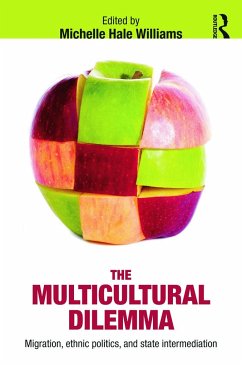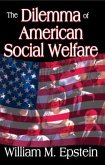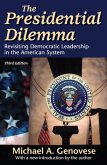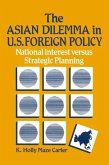The Multicultural Dilemma
Migration, Ethnic Politics, and State Intermediation
Herausgeber: Williams, Michelle
The Multicultural Dilemma
Migration, Ethnic Politics, and State Intermediation
Herausgeber: Williams, Michelle
- Broschiertes Buch
- Merkliste
- Auf die Merkliste
- Bewerten Bewerten
- Teilen
- Produkt teilen
- Produkterinnerung
- Produkterinnerung
This book considers the contemporary challenge of government in multicultural societies.
Andere Kunden interessierten sich auch für
![The Polish Dilemma The Polish Dilemma]() Lawrence S GrahamThe Polish Dilemma47,99 €
Lawrence S GrahamThe Polish Dilemma47,99 €![The Democratic Dilemma of American Education The Democratic Dilemma of American Education]() Arnold ShoberThe Democratic Dilemma of American Education59,99 €
Arnold ShoberThe Democratic Dilemma of American Education59,99 €![Lula, the Workers' Party and the Governability Dilemma in Brazil Lula, the Workers' Party and the Governability Dilemma in Brazil]() Hernán F. Gómez BrueraLula, the Workers' Party and the Governability Dilemma in Brazil64,99 €
Hernán F. Gómez BrueraLula, the Workers' Party and the Governability Dilemma in Brazil64,99 €![The Dilemma of American Social Welfare The Dilemma of American Social Welfare]() William EpsteinThe Dilemma of American Social Welfare23,99 €
William EpsteinThe Dilemma of American Social Welfare23,99 €![The Presidential Dilemma The Presidential Dilemma]() Michael A. GenoveseThe Presidential Dilemma68,99 €
Michael A. GenoveseThe Presidential Dilemma68,99 €![The Energy Security Dilemma The Energy Security Dilemma]() David BernellThe Energy Security Dilemma64,99 €
David BernellThe Energy Security Dilemma64,99 €![The Asian Dilemma in United States Foreign Policy The Asian Dilemma in United States Foreign Policy]() K. Holly Maze CarterThe Asian Dilemma in United States Foreign Policy61,99 €
K. Holly Maze CarterThe Asian Dilemma in United States Foreign Policy61,99 €-
-
-
This book considers the contemporary challenge of government in multicultural societies.
Hinweis: Dieser Artikel kann nur an eine deutsche Lieferadresse ausgeliefert werden.
Hinweis: Dieser Artikel kann nur an eine deutsche Lieferadresse ausgeliefert werden.
Produktdetails
- Produktdetails
- Verlag: Routledge
- Seitenzahl: 286
- Erscheinungstermin: 19. November 2012
- Englisch
- Abmessung: 234mm x 156mm x 16mm
- Gewicht: 439g
- ISBN-13: 9780415631235
- ISBN-10: 0415631238
- Artikelnr.: 36138079
- Herstellerkennzeichnung
- Libri GmbH
- Europaallee 1
- 36244 Bad Hersfeld
- gpsr@libri.de
- Verlag: Routledge
- Seitenzahl: 286
- Erscheinungstermin: 19. November 2012
- Englisch
- Abmessung: 234mm x 156mm x 16mm
- Gewicht: 439g
- ISBN-13: 9780415631235
- ISBN-10: 0415631238
- Artikelnr.: 36138079
- Herstellerkennzeichnung
- Libri GmbH
- Europaallee 1
- 36244 Bad Hersfeld
- gpsr@libri.de
Michelle Hale Williams is Associate Professor of Political Science in the Department of Government, University of West Florida, USA.
Preface: Multuculturalism and Ethnic Politics through the work of William
Safran 1. Introduction: THe Multicultural Dilemma Michelle Hale Williams
Section 1: Understanding Key Actors in the Growth of Multicultural
Societies: Conceptualizing Immigrants and Diaspora 2. The Limitations of
Grand Migration Theory: Embedding Experiences of Immigration and Immigrant
Incorporation within their Appropriate National, Regional and Local
Settings Anthony Messina 3. Globalization, Diaspora and Transnationalism:
Challenges and Opportunities for the Indian Diaspora Ajaya Sahoo Section 2:
Factors in Ethnic Identity and Nationalism: Considering the Role of
Language, Religion, Citizenship Criteria, Education, and Resource
Inequality 4. Conceptualizing the Nation: Myths, Imagined Communities or
Multi Ethnic Realities? The Cases of Israel, France, and the United States
Nancy Kwang Johnson 5. Do Religion and Language as Identity Markers Promote
Ethnocentrism and Xenophobia? A Theoretical Exploration Ray Taras 6.
Islamic Identity, Yes, Islamist Parties, No: The Mainstreaming of Political
Islam and its Challenge for Islamist Parties Julie Chernov Hwang 7. The
Importance of Citizenship Criteria: Jewishness between Ethnicity, Religion
and Nationalism during the First World War from the Point of View of André
Suarès Jean Tournon 8. Learning How to Remember: Education and Collective
Memory Formation as a Tool in Reconciliation Philip Barker and Alicia
Houser 9. Institutions to Bridge Troubled Waters: Water-User Associations
and Interests, Identities, Conflict and Cooperation Jenny R. Kehl 10.
"Primordialism" and the Study of Nationalism John Coakley Section 3:
Mediating Multicultural Challenges: State and Institutional Responses 11.
Consociationalism and Conflict Resolution Adrian Guelke 12. State and
Stateless Nationalisms, Old and New Diversities, and Federal Governance
Luis Moreno 13. Evaluating Party Politicization of Immigration Michelle
Hale Williams 14. The Long Twilight of Jaconbinism: Evaluating the French
Assimilationist Model Steve Majstorovic 15. Conclusion: Dealing with the
Multicultural Dilemma Michelle Hale Williams
Safran 1. Introduction: THe Multicultural Dilemma Michelle Hale Williams
Section 1: Understanding Key Actors in the Growth of Multicultural
Societies: Conceptualizing Immigrants and Diaspora 2. The Limitations of
Grand Migration Theory: Embedding Experiences of Immigration and Immigrant
Incorporation within their Appropriate National, Regional and Local
Settings Anthony Messina 3. Globalization, Diaspora and Transnationalism:
Challenges and Opportunities for the Indian Diaspora Ajaya Sahoo Section 2:
Factors in Ethnic Identity and Nationalism: Considering the Role of
Language, Religion, Citizenship Criteria, Education, and Resource
Inequality 4. Conceptualizing the Nation: Myths, Imagined Communities or
Multi Ethnic Realities? The Cases of Israel, France, and the United States
Nancy Kwang Johnson 5. Do Religion and Language as Identity Markers Promote
Ethnocentrism and Xenophobia? A Theoretical Exploration Ray Taras 6.
Islamic Identity, Yes, Islamist Parties, No: The Mainstreaming of Political
Islam and its Challenge for Islamist Parties Julie Chernov Hwang 7. The
Importance of Citizenship Criteria: Jewishness between Ethnicity, Religion
and Nationalism during the First World War from the Point of View of André
Suarès Jean Tournon 8. Learning How to Remember: Education and Collective
Memory Formation as a Tool in Reconciliation Philip Barker and Alicia
Houser 9. Institutions to Bridge Troubled Waters: Water-User Associations
and Interests, Identities, Conflict and Cooperation Jenny R. Kehl 10.
"Primordialism" and the Study of Nationalism John Coakley Section 3:
Mediating Multicultural Challenges: State and Institutional Responses 11.
Consociationalism and Conflict Resolution Adrian Guelke 12. State and
Stateless Nationalisms, Old and New Diversities, and Federal Governance
Luis Moreno 13. Evaluating Party Politicization of Immigration Michelle
Hale Williams 14. The Long Twilight of Jaconbinism: Evaluating the French
Assimilationist Model Steve Majstorovic 15. Conclusion: Dealing with the
Multicultural Dilemma Michelle Hale Williams
Preface: Multuculturalism and Ethnic Politics through the work of William
Safran 1. Introduction: THe Multicultural Dilemma Michelle Hale Williams
Section 1: Understanding Key Actors in the Growth of Multicultural
Societies: Conceptualizing Immigrants and Diaspora 2. The Limitations of
Grand Migration Theory: Embedding Experiences of Immigration and Immigrant
Incorporation within their Appropriate National, Regional and Local
Settings Anthony Messina 3. Globalization, Diaspora and Transnationalism:
Challenges and Opportunities for the Indian Diaspora Ajaya Sahoo Section 2:
Factors in Ethnic Identity and Nationalism: Considering the Role of
Language, Religion, Citizenship Criteria, Education, and Resource
Inequality 4. Conceptualizing the Nation: Myths, Imagined Communities or
Multi Ethnic Realities? The Cases of Israel, France, and the United States
Nancy Kwang Johnson 5. Do Religion and Language as Identity Markers Promote
Ethnocentrism and Xenophobia? A Theoretical Exploration Ray Taras 6.
Islamic Identity, Yes, Islamist Parties, No: The Mainstreaming of Political
Islam and its Challenge for Islamist Parties Julie Chernov Hwang 7. The
Importance of Citizenship Criteria: Jewishness between Ethnicity, Religion
and Nationalism during the First World War from the Point of View of André
Suarès Jean Tournon 8. Learning How to Remember: Education and Collective
Memory Formation as a Tool in Reconciliation Philip Barker and Alicia
Houser 9. Institutions to Bridge Troubled Waters: Water-User Associations
and Interests, Identities, Conflict and Cooperation Jenny R. Kehl 10.
"Primordialism" and the Study of Nationalism John Coakley Section 3:
Mediating Multicultural Challenges: State and Institutional Responses 11.
Consociationalism and Conflict Resolution Adrian Guelke 12. State and
Stateless Nationalisms, Old and New Diversities, and Federal Governance
Luis Moreno 13. Evaluating Party Politicization of Immigration Michelle
Hale Williams 14. The Long Twilight of Jaconbinism: Evaluating the French
Assimilationist Model Steve Majstorovic 15. Conclusion: Dealing with the
Multicultural Dilemma Michelle Hale Williams
Safran 1. Introduction: THe Multicultural Dilemma Michelle Hale Williams
Section 1: Understanding Key Actors in the Growth of Multicultural
Societies: Conceptualizing Immigrants and Diaspora 2. The Limitations of
Grand Migration Theory: Embedding Experiences of Immigration and Immigrant
Incorporation within their Appropriate National, Regional and Local
Settings Anthony Messina 3. Globalization, Diaspora and Transnationalism:
Challenges and Opportunities for the Indian Diaspora Ajaya Sahoo Section 2:
Factors in Ethnic Identity and Nationalism: Considering the Role of
Language, Religion, Citizenship Criteria, Education, and Resource
Inequality 4. Conceptualizing the Nation: Myths, Imagined Communities or
Multi Ethnic Realities? The Cases of Israel, France, and the United States
Nancy Kwang Johnson 5. Do Religion and Language as Identity Markers Promote
Ethnocentrism and Xenophobia? A Theoretical Exploration Ray Taras 6.
Islamic Identity, Yes, Islamist Parties, No: The Mainstreaming of Political
Islam and its Challenge for Islamist Parties Julie Chernov Hwang 7. The
Importance of Citizenship Criteria: Jewishness between Ethnicity, Religion
and Nationalism during the First World War from the Point of View of André
Suarès Jean Tournon 8. Learning How to Remember: Education and Collective
Memory Formation as a Tool in Reconciliation Philip Barker and Alicia
Houser 9. Institutions to Bridge Troubled Waters: Water-User Associations
and Interests, Identities, Conflict and Cooperation Jenny R. Kehl 10.
"Primordialism" and the Study of Nationalism John Coakley Section 3:
Mediating Multicultural Challenges: State and Institutional Responses 11.
Consociationalism and Conflict Resolution Adrian Guelke 12. State and
Stateless Nationalisms, Old and New Diversities, and Federal Governance
Luis Moreno 13. Evaluating Party Politicization of Immigration Michelle
Hale Williams 14. The Long Twilight of Jaconbinism: Evaluating the French
Assimilationist Model Steve Majstorovic 15. Conclusion: Dealing with the
Multicultural Dilemma Michelle Hale Williams








